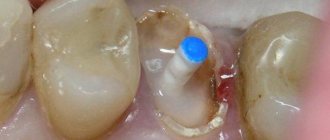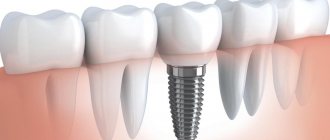Almost everyone, without exception, has to go to the dentist, and on a regular basis, since teeth tend to deteriorate. So you need to undergo at least a routine examination every six months to a year (depending on who’s health). Today, going to the dentist is an expensive procedure, which is why interest in guarantees for treatment is growing. If they are provided, within a certain period of time, clients can contact a doctor so that he can correct the breakdown or his own mistake. Moreover, the elimination of the defect should be carried out, if not completely free, then at a significant discount.
What is the guarantee
The warranty period is the period after the installation of a filling or prosthesis, during which either the clinic or the doctor who directly performed the work bears responsibility for their quality . This guarantee is given for almost all services, but the duration of its validity depends on the dentist. On average, a tooth is under warranty for about 1 year. If something happens to the tooth during this period, the client may require the following:
- so that the defect that has arisen is eliminated free of charge;
- return of losses that a person had to incur to correct a mistake elsewhere;
- no longer use the services of a doctor who made a mistake, but demand financial compensation.
There may be no warranty period. In this case, a client who notices a defect can contact us within two years and everything will be corrected for free. True, doctors may refuse to work for free, but they will reduce the price.
Guarantee for fillings
A filling is one of the most popular services in dentistry , and quite often the filling is not of such high quality as to keep the tooth intact. But the warranty does not cover minor defects. For example, you will not be corrected for the following:
- if the filling does not fit tightly enough around the edges;
- if caries is found on the tooth near the filling;
- if the outer edge of the filling has changed color.
That is, defects that do not cause pain and do not interfere with the use of teeth (biting and chewing) will not be covered by the warranty. Free treatment may be offered if:
- the filling has fallen out or is moving;
- secondary caries appeared due to improper manipulation by the doctor;
- part of the crown broke off.
In this case, the doctor must help in accordance with the requirements of the law.
Guarantee for prosthetics
Prosthetics is a service that is mainly required by pensioners. And given the size of domestic pensions, many people of retirement age simply cannot afford to pay twice for the same service. Therefore, you should immediately ask whether there are any guarantees for dentures.
Of course, prosthetics can also be damaged due to the fault of the client. Such errors include:
- the patient did not wash the denture after eating;
- bit something hard (for example, nut shells, caramels, etc.);
- They went to the doctor less than once every six months to polish the prosthesis, which is why it became unusable.
In other words, if you don't take care of your prosthesis, it will break. An experienced specialist can understand at first glance whether the breakdown is his fault or whether it is the patient’s negligence. Accordingly, he will not compensate for losses or redo the work.
Taking into account these circumstances, in a particular case, the warranty period and service life can be adjusted (reduced or increased) compared to the average, within the time limits established by the Raffa private unitary enterprise, which is recorded by the attending physician in the warranty card.
If a patient discovers deficiencies in the work performed (service provided) during the established warranty period and service life, the patient must contact the Raffa private unitary enterprise by phone or in person and, stating the essence of the comment, make an appointment with the attending physician.
If the doctor determines that these shortcomings are not related to the patient’s violation of the warranty conditions or operating conditions previously communicated to him, they must be eliminated by correcting or re-performing the work (providing the service) without additional payment.
Warranty obligations are fulfilled if the Patient complies with the following requirements:
- Implementation of the entire agreed treatment plan;
- Performing adjustments or other additional intervention in the work performed (service provided) only in the private unitary enterprise “Raffa”;
- Regular implementation of professional oral hygiene activities, with the frequency specified by the doctor in the outpatient card, but at least 2 times a year and only in the private unitary enterprise “Raffa”
Warranty obligations are terminated (not preserved) if the following circumstances occur during the warranty period:
- The emergence of new diseases in the patient, the development of existing diseases, or the occurrence of harmful external influences that directly or indirectly lead to changes in the teeth or surrounding tissues, incl. long-term use of medications for the treatment of other diseases;
- Patient's pregnancy;
- Failure of the patient to conduct a mandatory preventive examination, carried out once every 6 months, in the case of dental prosthetics supported by dental implants - once every 3 months;
- Failure of the patient to comply with the recommendations of the attending physician for the care of the oral cavity, the result of work (service);
- Failure to comply with the operating conditions of the work result (service)
Private Unitary Enterprise "Raffa" does not bear warranty obligations when providing dental services to the patient in the following cases:
- Treatment of teeth previously subjected to endodontic treatment is carried out;
- It is impossible to carry out or the patient refuses to carry out diagnostic, measuring, control images;
- If there is an alternative treatment option, at the request of the patient, therapeutic and preventive measures are carried out that are not the most optimal in the opinion of the attending physician in this case (destructive forms of periodontitis, the impossibility of re-treating the root canals of the tooth, etc.)
- The patient does not agree with the rational prosthetic plan proposed by the orthopedic dentist in accordance with the calculation of the periodontal endurance of the supporting teeth, taking into account research data;
- The patient has an allergy or intolerance to drugs and dental materials approved for use on the territory of the Republic of Belarus;
- A prosthesis not manufactured (purchased) by PUE “Raffa” is installed;
- When repairing a removable denture manufactured in another medical institution or with an expired warranty;
- The patient’s treatment was stopped not on the initiative of the private unitary enterprise “Raffa”;
- Complications have arisen due to the patient’s fault: failure to maintain oral hygiene, failure to comply with prescribed treatment, late reporting of complications, etc.;
- Force majeure circumstances have arisen (accident, shock, natural disaster, etc.) that could affect the results of treatment.
The warranty does not apply:
- For fixing decorative dental jewelry;
- For periodontal treatment and professional oral hygiene;
- For teeth whitening;
- For the treatment of baby teeth;
- For orthodontic devices.
| Types of jobs | Average period (warranty) | Average service life* |
| Therapeutic dentistry | ||
| Filling made of composite material | 1 year | 25 years |
| Glass ionomer cement filling | 1 year | 1 - 2 years |
| Orthopedic dentistry | ||
| Ceramic inlay, crown, veneer, bridge | 1 year | 5 – 7 years |
| Ceramic crown, zirconium dioxide bridge | 1 year | 5 – 10 years |
| Temporary crowns made of CAD/CAM resin | 6 months | up to 3 years |
| All-metal crowns | 1 year | 35 years |
| Metal-ceramic bridges and crowns | 1 year | 35 years |
| Clasp dentures | 1 year | 3 years |
| Plastic dentures | 1 year | 2 years |
| Adhesive prostheses, splints | 6 months | 1 year |
| Orthodontics | ||
| Retention devices after removing the bracket system | 1 year | 2 years |
* - depends on the patient’s compliance with all hygiene rules and the frequency of examination and oral care. If they are followed and there are no chronic diseases that accelerate the process of destruction of dental tissues, it has been practically and clinically proven that ceramic (metal-free) structures can serve regularly for up to 20 years or more.
Note:
1. The warranty applies to a specific object:
- To restore the coronal part using pin structures (fiberglass and anchor pins) without further prosthetics;
- For primary treatment of root canals, if complete patency is possible and permanent filling of the root canals with gutta-percha pins;
- A guarantee is given for the filling (including the use of a pin) without the need for further prosthetics;
- On the correct choice of treatment method and the correct initial diagnosis.
2. Confirmation of the quality of the work performed (service provided) and the non-occurrence of a warranty case is the following:
- The placed filling does not break or fall out. It is possible to change the color by 1 tone (toward lightening or darkening), which is corrected by the dentist during a follow-up examination;
- When caries is treated, tooth decay is stopped and secondary caries (a black stripe around the filling) does not occur.
Reduced warranty. No guarantee provided.
Due to the fact that the subject of the contract is the provision of medical services, where the result largely depends on the physiological and biological characteristics of the body, and also taking into account the difficulties of clearly predicting the outcome of treatment, it is possible to provide a reduced guarantee in the following cases:
- A 3-month guarantee is provided when treating a tooth that has direct indications for further prosthetics (covering with an orthopedic crown);
- The guarantee is not provided for re-treatment of root canals (endodontic treatment) and the impossibility of patency of the root canals for reasons: strong curvature, impossibility of complete filling, partial possibility of passage (it is not possible to pass part of the canal to the required length). In this case, the guarantee for the seal cannot be provided in full, i.e. for 1 year);
- The guarantee is not provided for the extraction of hidden fragments of instruments, the closure of perforations of the root canal wall during treatment not in the private unitary enterprise “Raffa”;
- The guarantee is not provided for a filling if more than ½ of the tooth volume is destroyed. This is an indication for prosthetics.
If the patient's follow-up examination is delayed by more than 1 month, the warranty will expire.
Due to their specific nature, it is not possible to establish warranty periods and service periods for certain types of work (services). These include:
- Treatment of tooth root canals (primary and re-treatment) if complete patency and permanent filling of the root canals with gutta-percha pins is impossible;
- Professional hygienic teeth cleaning;
- Temporary bandage (seal);
- Outpatient surgical operations, with the exception of implantation;
- Treatment of periodontal diseases;
- Teeth whitening
If it is necessary to treat canals after placing a filling for deep caries, it is carried out at the patient’s expense.
Taking into account the specifics of medical services, the quality of the work performed (service provided) depends on the general reaction of the body and the patient’s health status; a positive result in root canal treatment is about 80% of cases.
A guarantee for permanent orthopedic work is not provided for the following items:
- Loss of artificial teeth from dentures;
- Fracture of the plastic prosthesis;
- Destruction of micro-locks (attachments) and micro-hooks (clasps)
Temporary orthopedic structures must be replaced with permanent ones within the period specified by the attending physician. The regulated period of wearing temporary structures is determined by the dentist and must be brought to the attention of the patient. If for some reason (due to the patient’s fault) temporary structures are not replaced with permanent ones, this is the basis for termination of the guarantee and removal of responsibility from Raffa Private Unitary Enterprise for the result of treatment.
The following medical prosthetic methods do not allow us to provide a full warranty period in the presence of the following diagnoses or cases:
- Presence of tooth mobility. In this case, the warranty period is determined by the doctor;
- Presence of gum disease. In this case, the warranty period is set by the doctor depending on the severity of the disease.
The guarantee is not provided for the presence of chips of ceramics associated with daytime and nighttime bruxism, biting on hard objects that accidentally got into food. If the patient's follow-up examination is delayed by more than 1 month, the warranty will expire. A preventive examination is an event carried out in order to maintain the functionality of orthopedic structures (replacement of matrices, relining, grinding, etc.), and is paid additionally.
For surgical treatment, the following guarantee is provided:
- 1 year for types of dental implantation (work), subject to all doctor’s recommendations and scheduled visits;
- 2 years for dental prosthetics (work) with metal-free transclusal fixation structures after implantation, subject to all doctor’s recommendations and prosthetic care rules;
- 1 year for dental prosthetics after implantation with metal-ceramic dentures with cement fixation.
The service life of implants depends on many factors and the exact timing is determined by the attending physician, who will assess the degree of implant healing, the fit of dental crowns, etc.
Approximate service life of implants:
- Implant itself – 10 years;
- All-metal dental crowns supported by an implant – 3 years;
- Metal-ceramic dental crowns – 3 years;
- Zirconium oxide dental crowns – 10 years;
- Ceramic dental crowns – 7 years;
- Removable dentures – 3 years.
The terms are approximate and may vary in both directions depending on lifestyle and care for implants.
Guarantees for orthodontics.
Due to the fact that during orthodontic treatment it is difficult to predict results before specific dates, specific terms for eliminating dental anomalies and clear results cannot be guaranteed. When performing orthodontic work, PUE "Raffa" assumes the following obligations:
- Carrying out diagnostics, identifying the causes of dental anomalies;
- Selection of optimal orthodontic equipment;
- Improving the aesthetics and functions of the dental system
The warranty period for orthodontic services begins from the moment the retention devices are installed in the patient’s mouth, which is confirmed by an entry in the outpatient card.
The warranty is not issued or is void:
- If the patient violates the schedules of preventive examinations, hygiene visits provided for in the treatment plan;
- If the operating conditions of the orthodontic structure are not observed (use of specialized pastes and toothbrushes, cleaning tablets, etc.);
- If, if additional treatment is necessary, the patient does not promptly visit other dental specialists of the private unitary enterprise “Raffa”;
- If, after completion of active treatment, the patient does not comply with the recommendations for wearing a retention device or does not use it.
Do dental clinics have warranty obligations?
Naturally, dentistry that provides services to people must be held accountable for their work. But for accuracy, all guarantees provided by the establishments in question can be divided into two large groups:
- Which are given regarding the process of providing services.
- Concerning the quality of the work performed and how durable it is.
Each group needs more detailed study.
What does the first group suggest?
The group under consideration includes all guarantees that relate to the safety of the client when he is treating a tooth. This is quite understandable, since most of the instruments and operations performed by a doctor are quite traumatic. Therefore, the clinic must guarantee the following:
- adhere to standards in the use of antiseptics and other medications, as well as observe safety precautions;
- have the required number of certificates for the use of all instruments and medications;
- the doctor must have education and appropriate qualifications;
- the specialist should not violate laws by providing services in quantities that do not harm the patient’s health;
- inform the client and begin work only after receiving consent to it.
In other words, the client should feel safe during the procedure, knowing that the doctor will not harm or deceive him. True, in this case, responsibility lies not only with the health worker, but also with the clinic.
Second type guarantees
Since the group under consideration involves the peculiarities of using and exploiting the results of the services provided, the patient should expect the following:
- the filling or prosthesis will serve for the specified period;
- the result of the dentist’s work will not harm the patient;
- all required functions will be preserved during direct use;
- the aesthetic and biological function of the product will be preserved.
The clinic must provide the doctor with all the necessary materials, and the dentist’s job is to do everything to ensure that the above guarantees come true.
Types of warranty obligations
The guarantee for installing a seal consists of a guarantee of the quality of the services provided and a guarantee that applies to the materials used. That is, the dentist in this case is responsible for the filling materials that he uses in his work. Due to the fact that the material turned out to be defective, the doctor does not relieve himself of responsibility for the work he performed.
The guarantee only applies to cases where the defect in the filling was not caused by the patient himself . For example, if a patient opens beer bottles with his teeth, then the warranty against damage to the filling will not apply.
Guarantees for quality dental services include several unconditional provisions.
Thus, the dentist is obliged to pre-treat instruments with antiseptics, he must follow safety rules, strictly monitor the dosage of drugs, have a medical education, and adhere to the recommended work schedule.
First, the doctor must make sure that the patient does not have concomitant diseases that may interfere with certain manipulations (for example, the patient may be allergic to certain anesthetics and may require paid pain relief). When performing work, the rule of reasonable risk must be taken into account.
The doctor must provide the patient with the full range of information about what he intends to do, how and what sensations the patients will experience, offer him several treatment options, and indicate the cost of the upcoming filling; obtain informed consent from the patient and then do your job.
With regard to the guarantee for materials, it is meant that the material will remain safe throughout the entire operational period, the patient is guaranteed the preservation of the mechanical functions of the filling and tooth, and an aesthetic appearance.
Warranty periods
The warranty period may or may not be established - this is a right, not an obligation. But doctors are obliged to guarantee the quality of their work. Therefore, if problems are noticed on a tooth after a filling, the patient may require:
- remove any defects free of charge;
- discount on services;
- re-do the work that was not done well enough;
- pay the amount that the patient paid to another doctor to correct errors.
But dentistry can only do all this if the problem occurred during the warranty period.
Execution of consumer rights
Whether consumer rights are enforced depends on the clients. Remember - it is always important to read the contract for the service provided. It spells out all the nuances of receiving the service, as well as how long the warranty period will last. But besides this, we’ll talk about which actions in which situation are more rational to perform in order to get the maximum result and spend less time.
Replacement according to warranty terms
Most often, after the doctor has treated the tooth, after some time the filling or part of it falls out. If the warranty is still valid, it is best to contact the same dentist where you were treated before. The sequence of actions is as follows:
- call the reception desk and make an appointment with a doctor (tell us what happened);
- When you come to your appointment, take the contract and check with you (they should remind you of this at the reception, but this does not always happen);
- the doctor examines the filling and makes a verdict - whether this is a warranty case or not;
- if the doctor’s answer is not satisfactory, you can conduct an independent examination and even have the tooth treated by another doctor;
- bring the results of the examination to the dentistry, and also provide an invoice for the work performed so that the clinic compensates for losses.
Sometimes even the presence of an expert's opinion does not help. In this case, it is advisable to consult with a lawyer to develop a plan for further action. For example, make a claim or even send a lawsuit to court, which is especially important if the amount for poor-quality treatment was quite large or the specialists caused harm to health.
When does the warranty stop working?
Clinics may not operate under warranty in the following cases:
- If the patient ignored oral hygiene procedures. This item includes not only regular brushing of teeth, but also various rinses, ointments and gels. But only if the recovery period included the use of the funds in question, and this was recorded in the patient’s card.
- If someone else touched the filling. For example, after going to the dentist, a few days later the client went to another doctor, who, while treating a neighboring tooth, touched a controversial tooth (for example, he filed it a little).
- An influence of indefinable force was exerted. In particular, the client had an accident or fell, and because of this he knocked out/broke a tooth. Naturally, the doctor is not to blame for this and the patient has no right to demand compensation.
In addition, some types of fillings are not covered by guarantees at all. For example, this applies to temporary options.
Replacement under warranty
If after treatment a person’s filling breaks or falls out, but the warranty has not yet expired, you should demand that the problem be corrected. To do this, you need to call the reception of the dental company where the treatment was performed and make an appointment, telling about your problem. It is advisable that the person retains the contract and the receipt.
At the appointment, the doctor will examine the tooth and inform the patient whether the current situation is covered by the guarantee. If treatment was refused, but the patient is sure that the trouble arose due to poor-quality service, examinations can be carried out. You will have to do it at your own expense, but if the result is in favor of the patient, the clinic will have to pay for all services.
If, after the examination, dentistry does not want to correct its mistakes, then you should seek help from a medical lawyer. With its help, an application will be drawn up to request a medical record from the clinic. It is drawn up in two copies and one is signed by a representative of dentistry stating that the document has been approved.
After this, the patient goes to any other clinic and asks the doctor to describe the oral cavity. This procedure is necessary to file a claim. After this, you can begin dental treatment.
Secondary caries due to the fault of the doctor
When filing an application with the court, you must provide all receipts and demand compensation for moral damages.
Guarantees for implants
Dental implantation is considered one of the most expensive dental services. Accordingly, guarantees are given under special conditions. Guarantees are provided not only by dentistry, but also by dental implant manufacturing companies.
- Premium class. This type of implant is guaranteed for the entire life of the person. Lifetime service is guaranteed, even if something breaks during use. True, this is unlikely, since such products cost a fortune.
- Middle price segment. Such implants can last a very long time, but they are covered under warranty for a maximum of 25 years (sometimes up to 10 years). The exact timing depends on the manufacturers. Moreover, almost always such teeth can not be changed until the end of life.
- Economy class. Despite the name, such implants can last quite a long time, and the warranty on them lasts up to 15 years. But this point needs to be clarified at the clinic where you are doing the installation.
In any case, if the implant turns out to be defective, it must be replaced. As a rule, defects (if any) manifest themselves already in the first year of operation. But the replacement will be carried out only if the patient followed all the rules and recommendations of the doctor.
Warranty period for dental services
The warranty period for dental services is set at the discretion of the doctor. There is no violation of consumer rights in the fact that each clinic sets its own time frame for which the warranty period applies.
With regard to the installed seal, it is worth distinguishing between concepts such as warranty period and service life . The latter, as a rule, is an order of magnitude longer. For example, the service life of a crown is 15 years, but this does not mean that the warranty will last all this time.
The start date of the warranty period is the date of provision of the medical service, the end date is the next day after the expiration of the warranty.
The duration of the warranty period is influenced by the clinical picture of the patient’s oral cavity. Thus, with increased tooth wear, the presence of oral diseases (in particular, such as periodontitis, stomatitis, periodontal disease), and occlusion characteristics, the guarantee may have a shorter time frame.
The timing may be influenced by the patient’s compliance with oral hygiene and attendance at free regular examinations.
In many ways, the warranty period depends on the materials used by the dentist when making the filling.
Typically, dentists provide longer warranties for more expensive and higher quality materials.
For example, for cheap cements the warranty period is set at 3 months; for expensive light fillings it can last up to 2 years. In most clinics, the warranty on fillings is set at 1 year.
It is worth noting that a very long warranty (more than 10 years) should alert the patient . Most likely, a careless dentist does not even think about fulfilling such warranty obligations.
As for installed prostheses, they have extended warranty periods. When using prosthetics with single crowns, they average 2-5 years, with crowns on implants - 4-10 years, with bridge prostheses - 4-10 years.
According to the Consumer Protection Law, the warranty begins to be calculated from the moment the relevant service is provided, but dental services may be subject to a reduced warranty. The patient must be notified about the reduction in time and the reasons for this and this fact must be recorded in the medical record.








